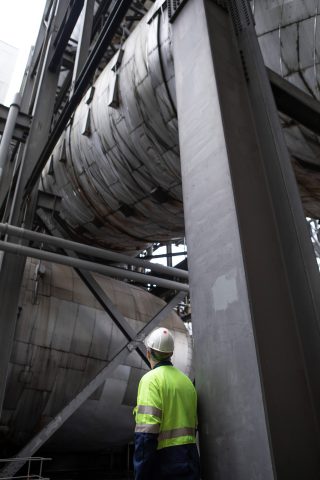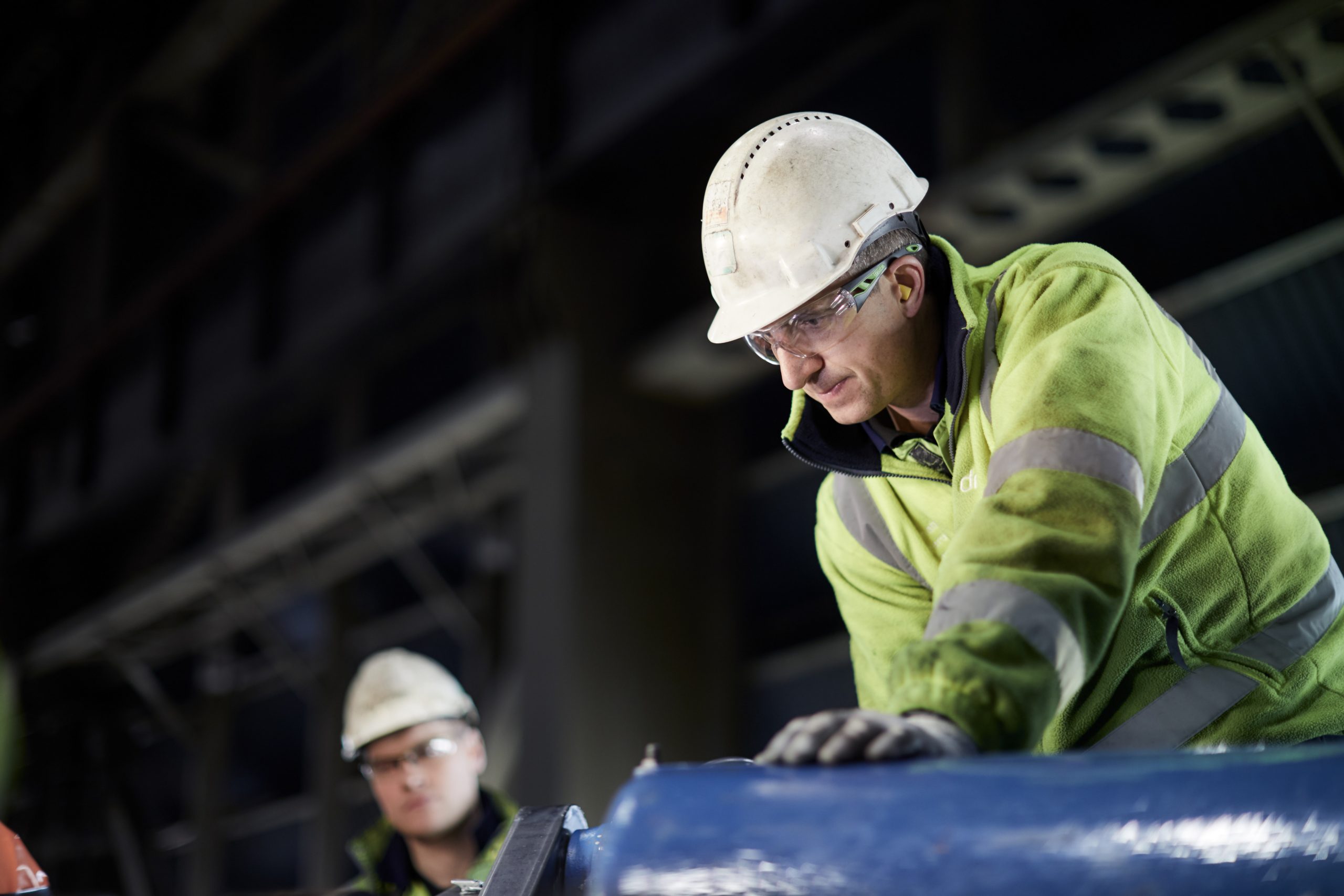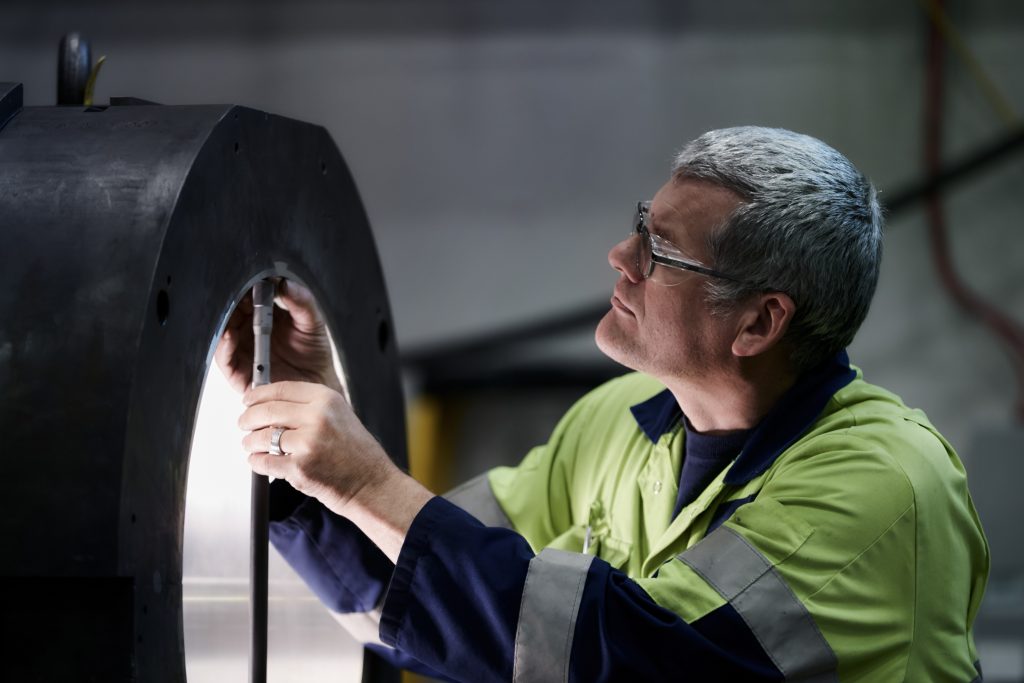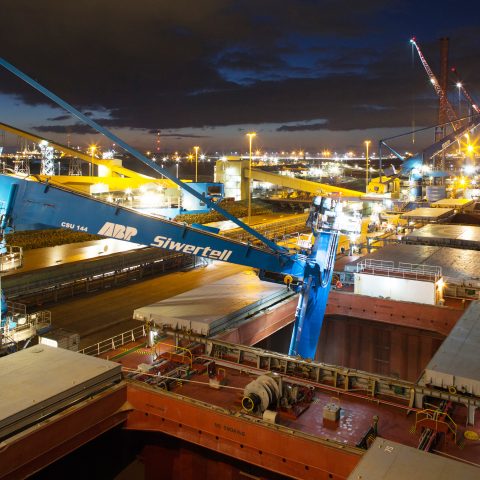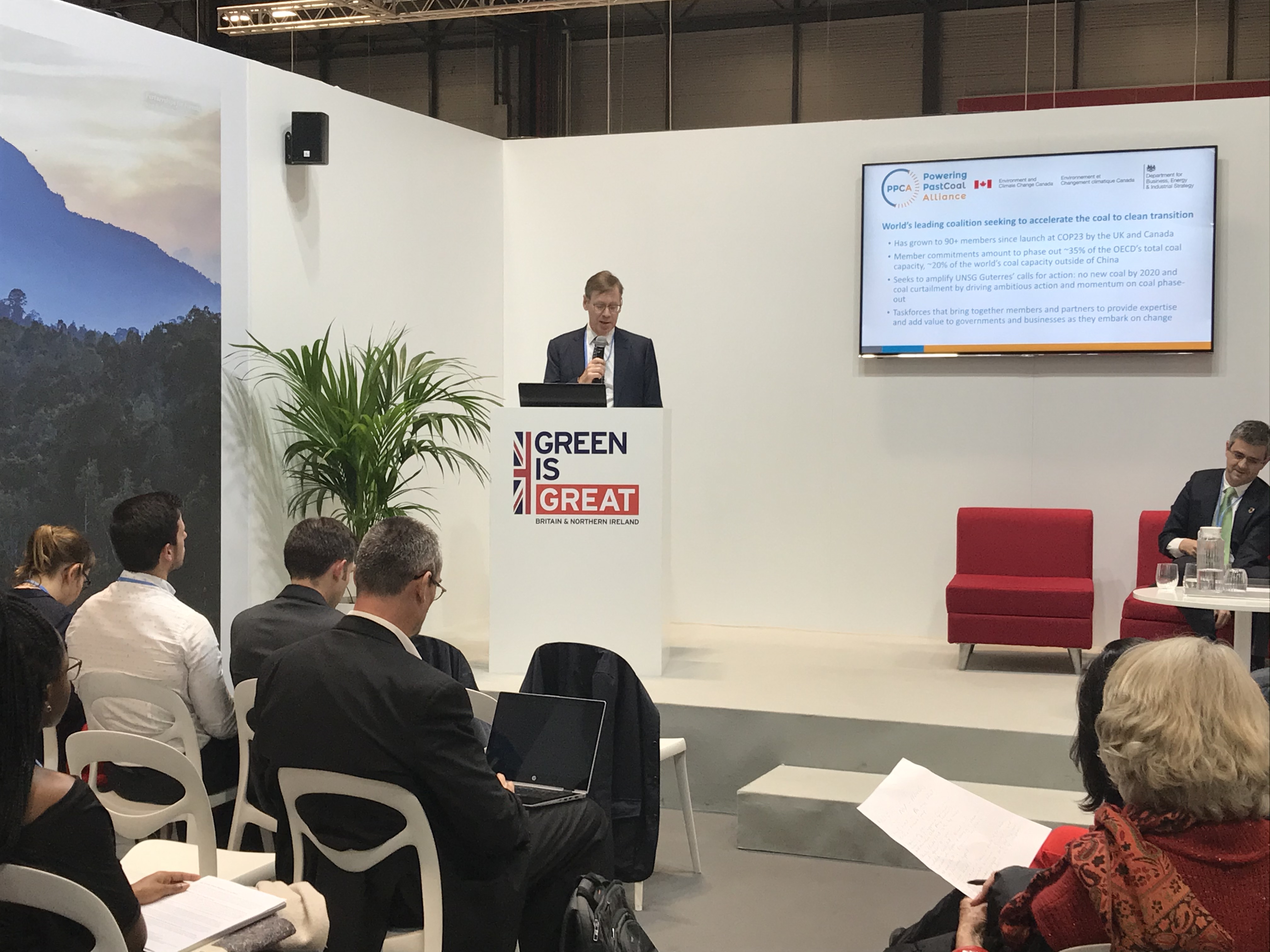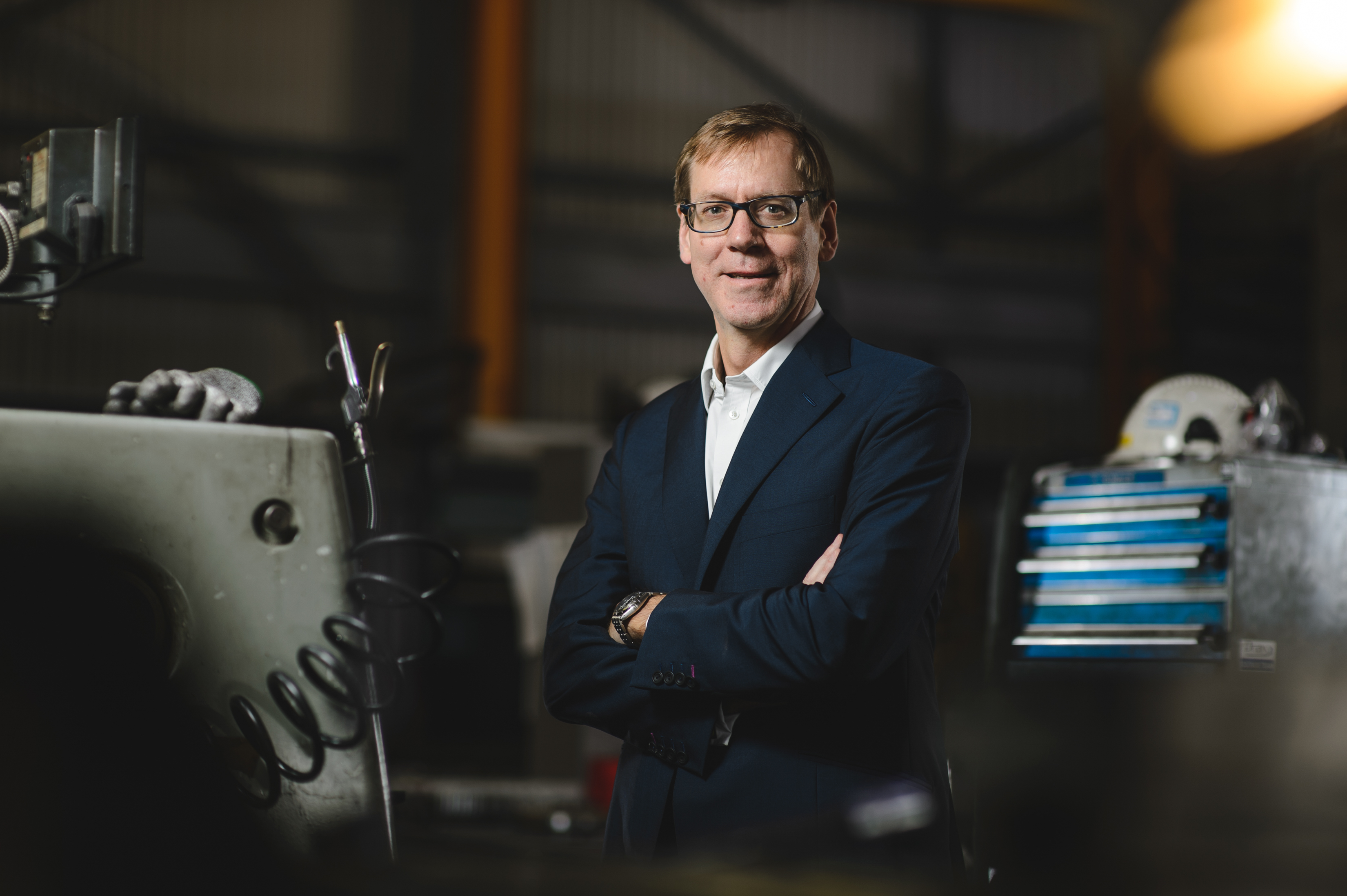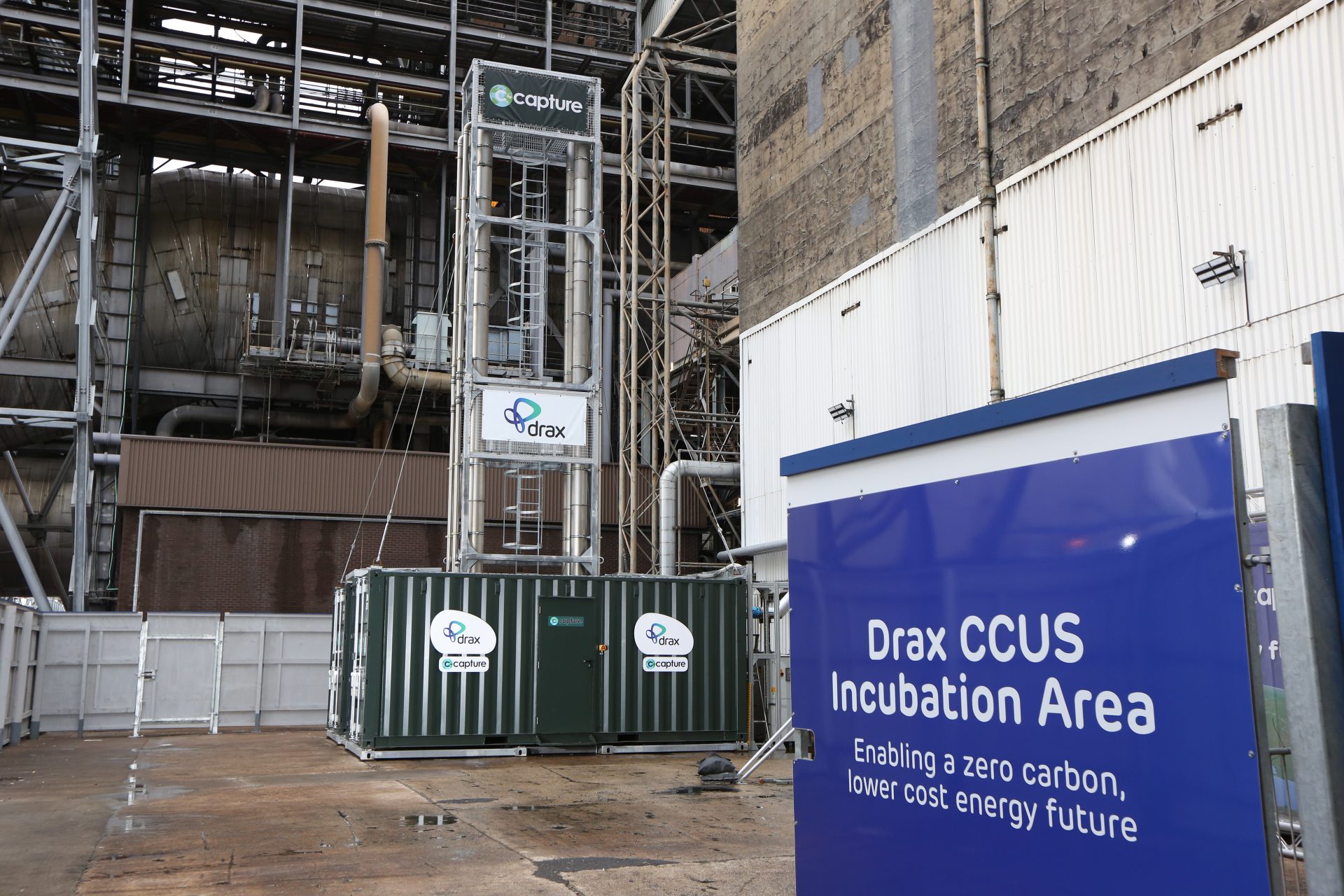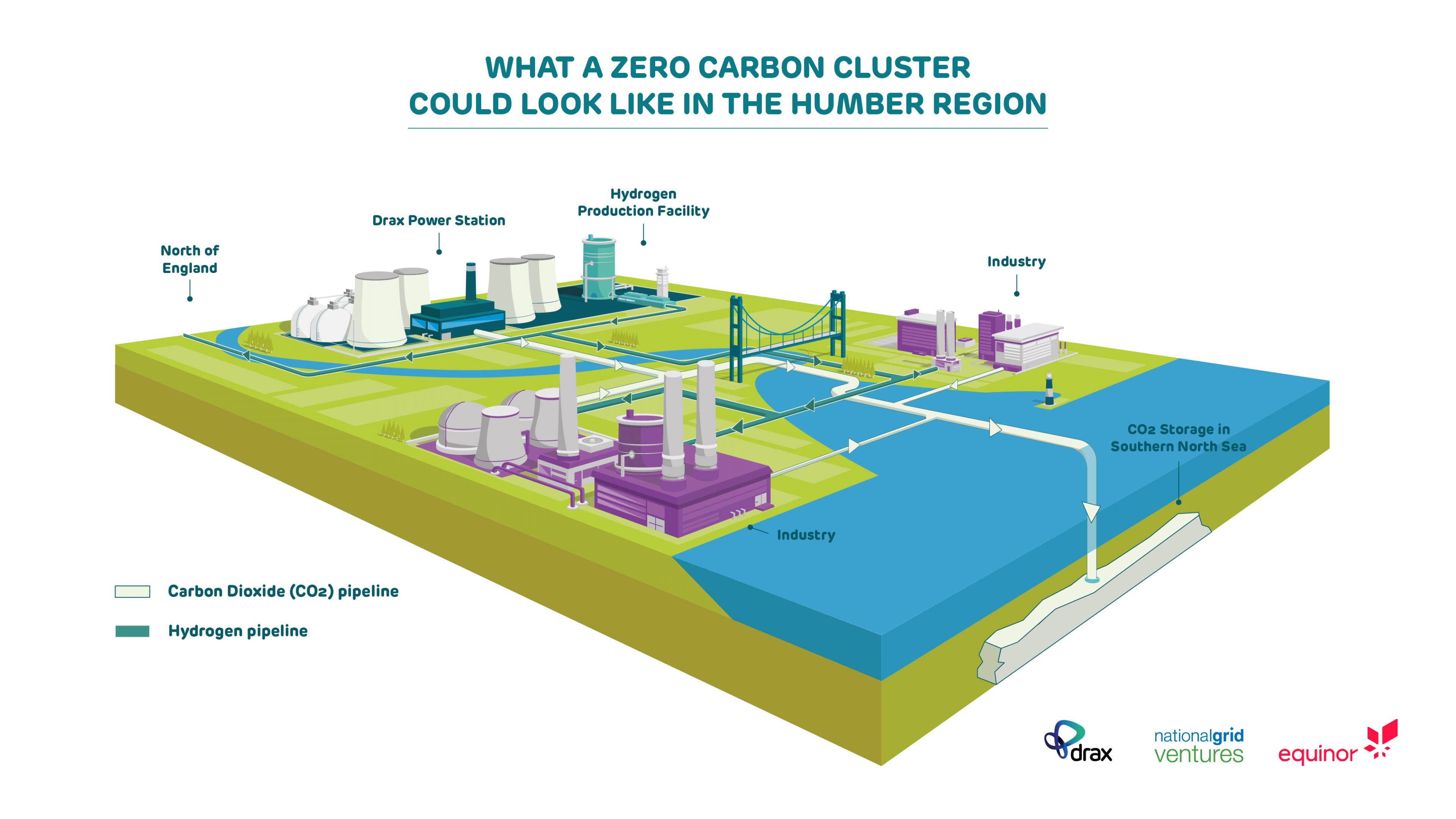
Tackling climate change requires global collaboration. As a UK-US sustainable energy company, with communities on both sides of the Atlantic, we at Drax are keenly aware of the need for thinking that transcends countries and borders.
Joe Biden has become the 46th President of my native country at a crucial time to ensure there is global leadership and collaboration on climate change. Starting with re-joining the Paris Agreement, I am confident that the new administration can make a significant difference to this once-in-a-lifetime challenge.
This is why Drax and our partners are mobilising a transatlantic coalition of negative emissions producers. This can foster collaboration and shared learning between the different technologies and techniques for carbon removal that are essential to decarbonise the global economy.
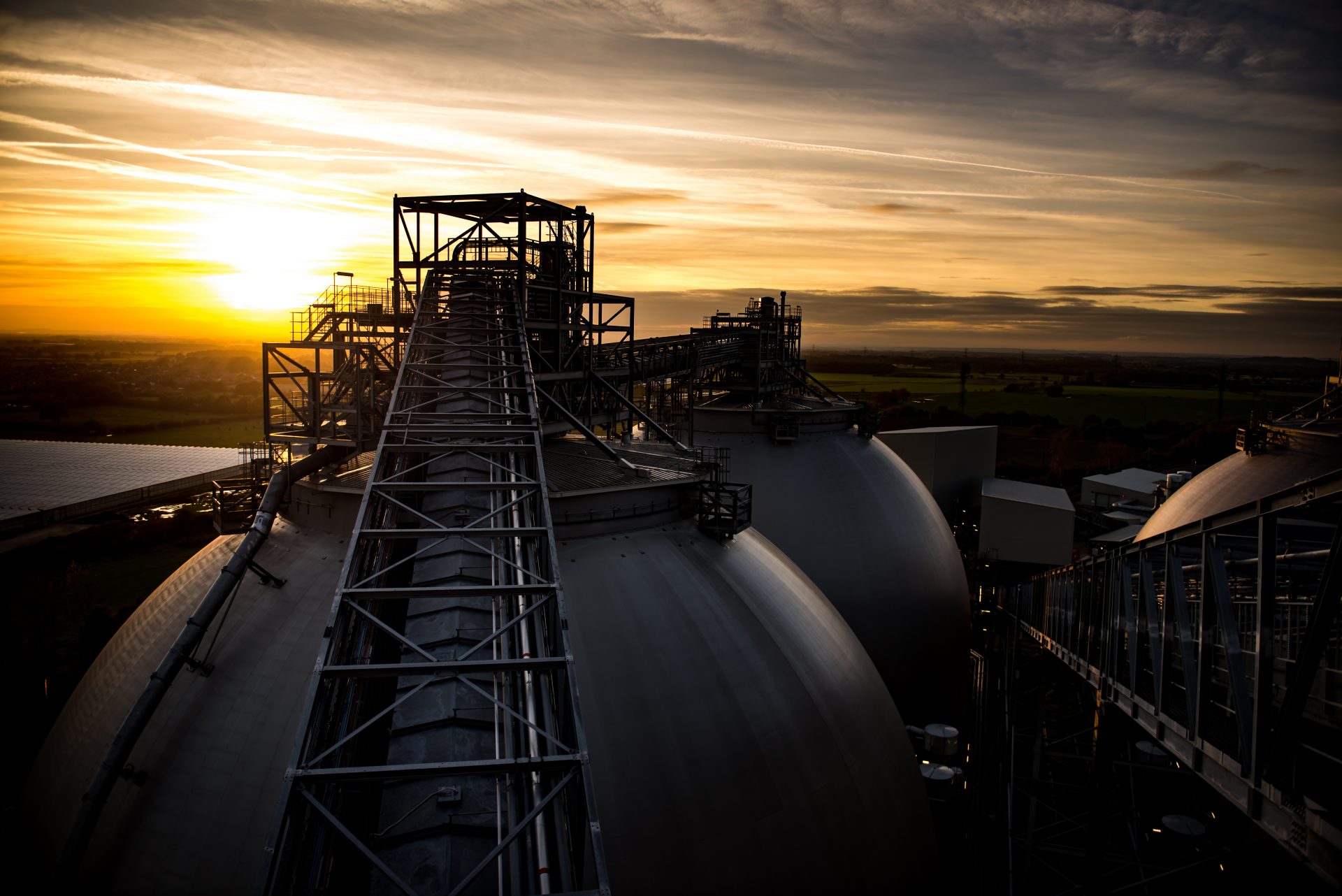
Biomass storage domes at Drax Power Station in North Yorkshire
Whilst political and technical challenges lie ahead, clear long-term policies that spur collaboration, drive innovation and enable technologies at scale are essential in achieving the UK and US’ aligned targets of reaching net zero carbon emissions by 2050.
Collaboration between countries and industries
What makes climate change so difficult to tackle is that it requires collaboration from many different parties on a scale like few other projects. This is why the Paris Agreement and this year’s COP26 conference in Glasgow are so vital.
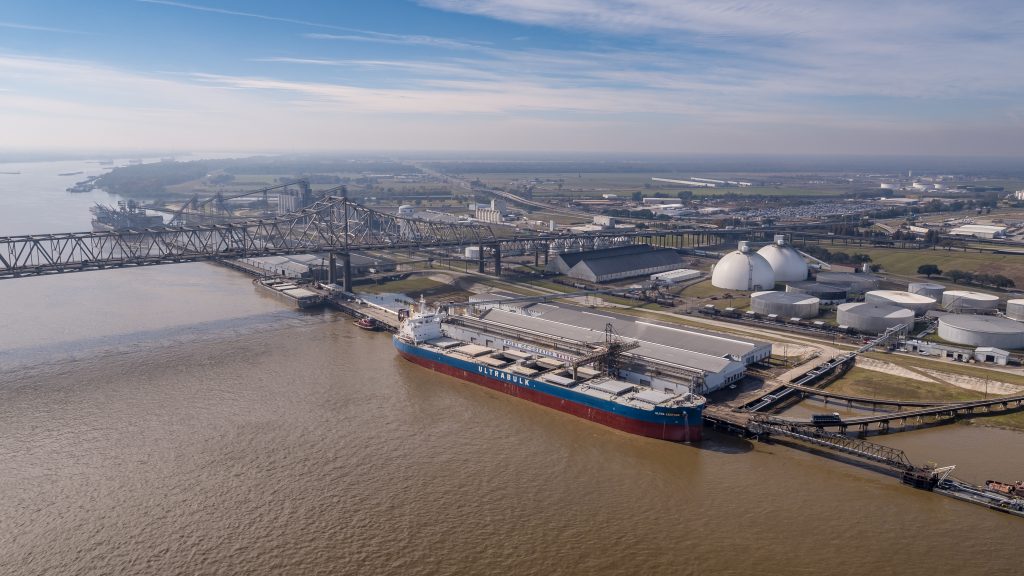
Sustainable biomass wood pellets being safely loaded at the Port of Greater Baton Rouge onto a vessel destined for Drax Power Station
Our effort towards delivering negative emissions using bioenergy with carbon capture and storage (BECCS) is another example of ambitious decarbonisation that is most impactful as part of an integrated, collaborative energy system. The technology depends upon sustainable forest management in regions, such as the US South where our American communities operate. Carbon capture using sustainable bioenergy will help Drax to be carbon negative by 2030 – an ambition I announced at COP25, just over a year ago in Madrid.
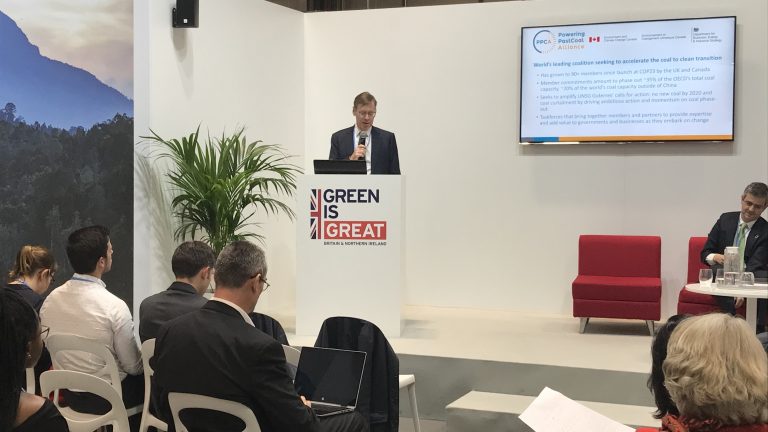
Will Gardiner announcing Drax’s carbon negative ambition at COP25 in Madrid (December 2019).
Experts on both sides of the Atlantic consider BECCS essential for net zero. The UK’s Climate Change Committee says it will play a major role in tackling carbon dioxide (CO2) emissions that will remain in the UK economy after 2050, from industries such as aviation and agriculture that will be difficult to fully decarbonise. Meanwhile, a report published last year by New York’s Columbia University revealed that rapid development of BECCS is needed within the next 10 years in order to curb climate change.
A variety of negative emissions technologies are required to capture between 10% and 20% of the 35 billion metric tonnes of carbon produced annually that the International Energy Agency says is needed to prevent the worst effects of climate change.
We believe that sharing our experience and expertise in areas such as forestry, bioenergy, and carbon capture will be crucial in helping more countries, industries and businesses deploy a range of technologies.
A formal coalition of negative emissions producers that brings together approaches including land management, afforestation and reforestation, as well as technical solutions like direct air capture (DAC), as well as BECCS, would offer an avenue to ensure knowledge is shared globally.
It would also offer flexibility in countries’ paths to net zero emissions. If one approach under-delivers, other technologies can work together to compensate and meet CO2 removal targets.
As with renewable energy, working in partnership with governments is essential to develop these innovations into the cost-effective, large scale solutions needed to meet climate targets in the mid-century.
A shared economic opportunity
I agree whole heartedly that a nation’s economy and environment are intrinsically linked – something many leaders are now saying, including President Biden. The recently approved US economic stimulus bill, supported by both Republicans and Democrats in Congress and which allocates $35 billion for new clean energy initiatives, is a positive step for climate technology and job creation.
Globally as many as 65 million well-paid jobs could be created through investment in clean energy systems. In the UK, BECCS and negative emissions are not just essential in preventing the impact of climate change, but are also a vital economic force as the world begins to recover from the effects of COVID-19.
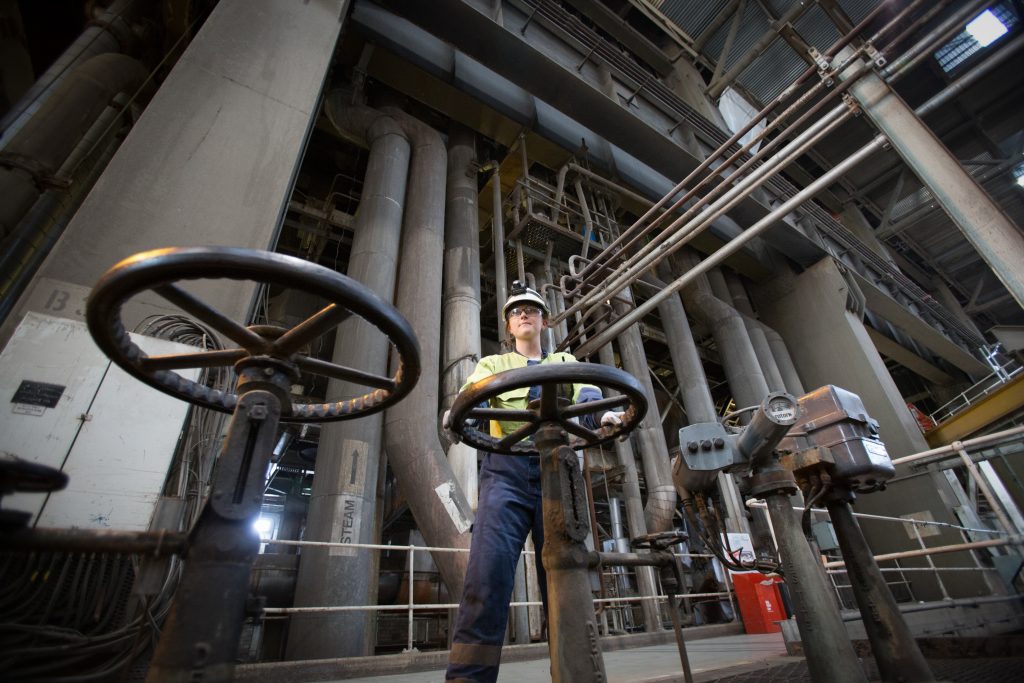
Engineer inside the turbine hall of Drax Power Station
Government and private investments in clean energy technologies can create thousands of well-paid jobs, new careers, education opportunities and upskill workforces. Developing BECCS at Drax Power Station, for example, would support around 17,000 jobs during the peak of construction in 2028, including roles in construction, local supply chains and the wider economy.
Additional jobs would be supported and created throughout our international supply chain. This includes the rail, shipping and forestry industries that are integral to rural communities in the US South.
We are also partnered with 11 other organisations in the UK’s Humber region to develop a carbon capture, usage and storage (CCUS) and hydrogen industrial cluster with the potential to spearhead creating and supporting more than 200,000 jobs around the UK in 2039.
The expertise and equipment needed for such a project can be shared, traded and exported to other industrial clusters around the world, allowing us to help reach global climate goals and drive global standards for CCUS and biomass sustainability.
Clear, long-term policies are essential here, not just to help develop technology but to mitigate risk and encourage investment. These are the next crucial steps needed to deploy negative emissions at the scale required to impact CO2 emissions and lives of people.
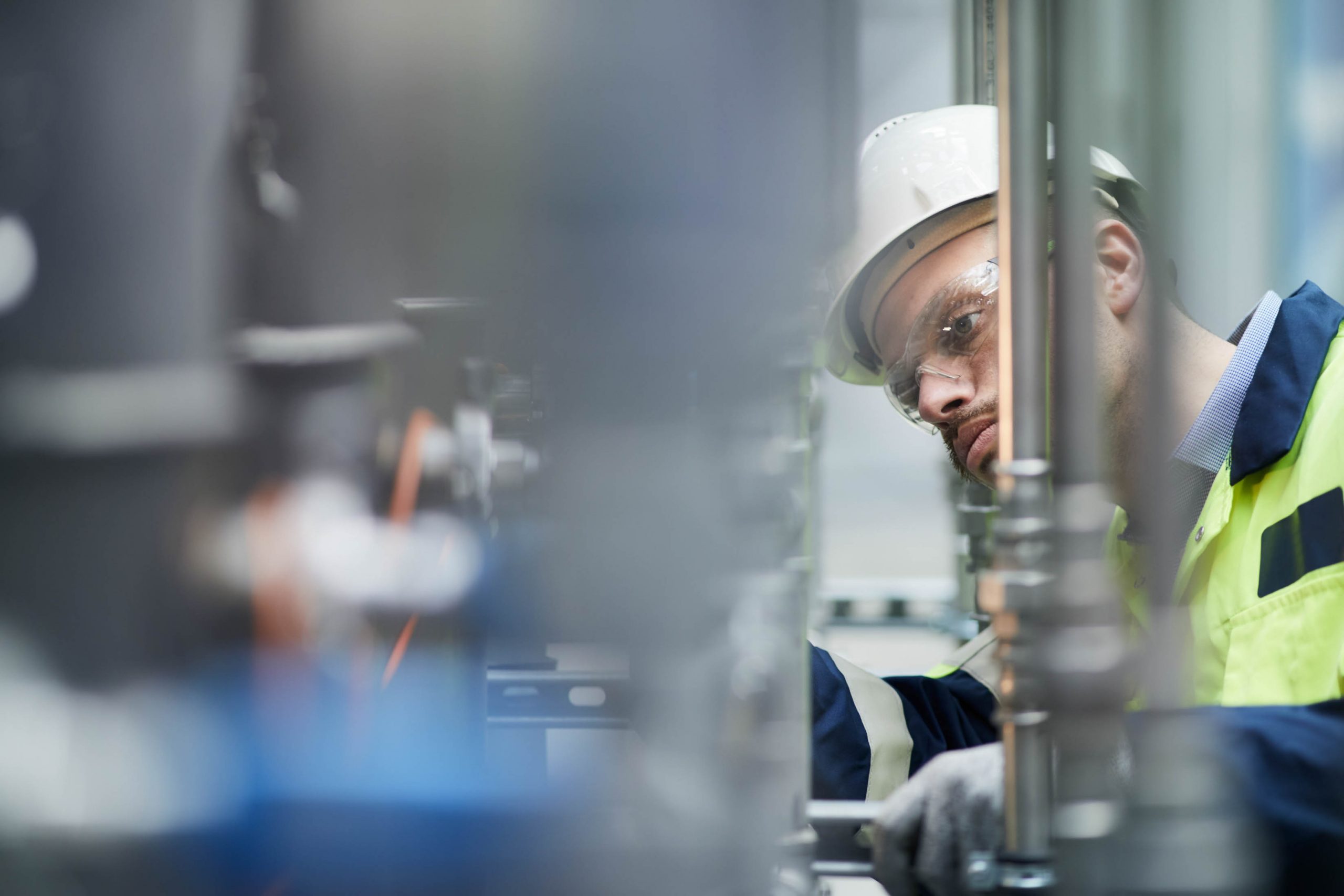
Engineer at BECCS pilot project within Drax Power Station
At Drax we directly employ almost 3,000 people in the US and UK, and indirectly support thousands of families through our supply chains on both sides of the Atlantic. Drax Power Station is the most advanced BECCS project in the world and we stand ready to invest in this cutting-edge carbon capture and removal technology. We can then share our expertise with the United States and the rest of the world – a world where major economies are committing to a net zero future and benefiting from a green economic recovery.





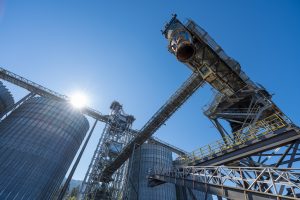
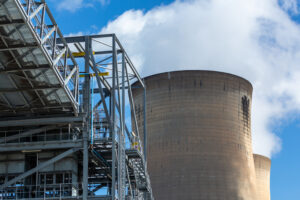


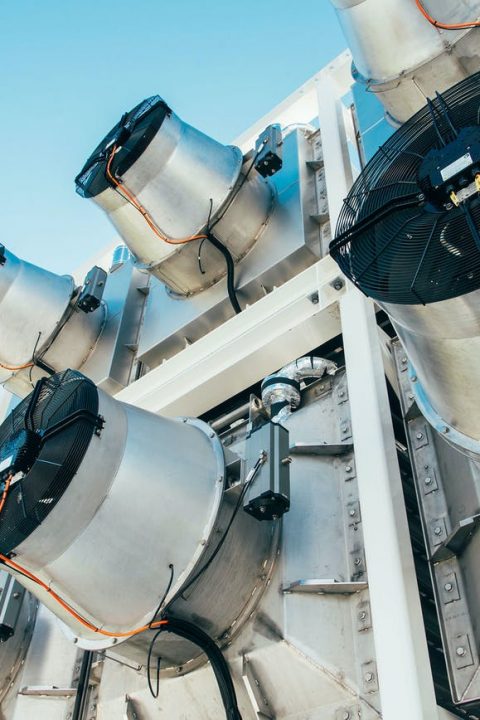



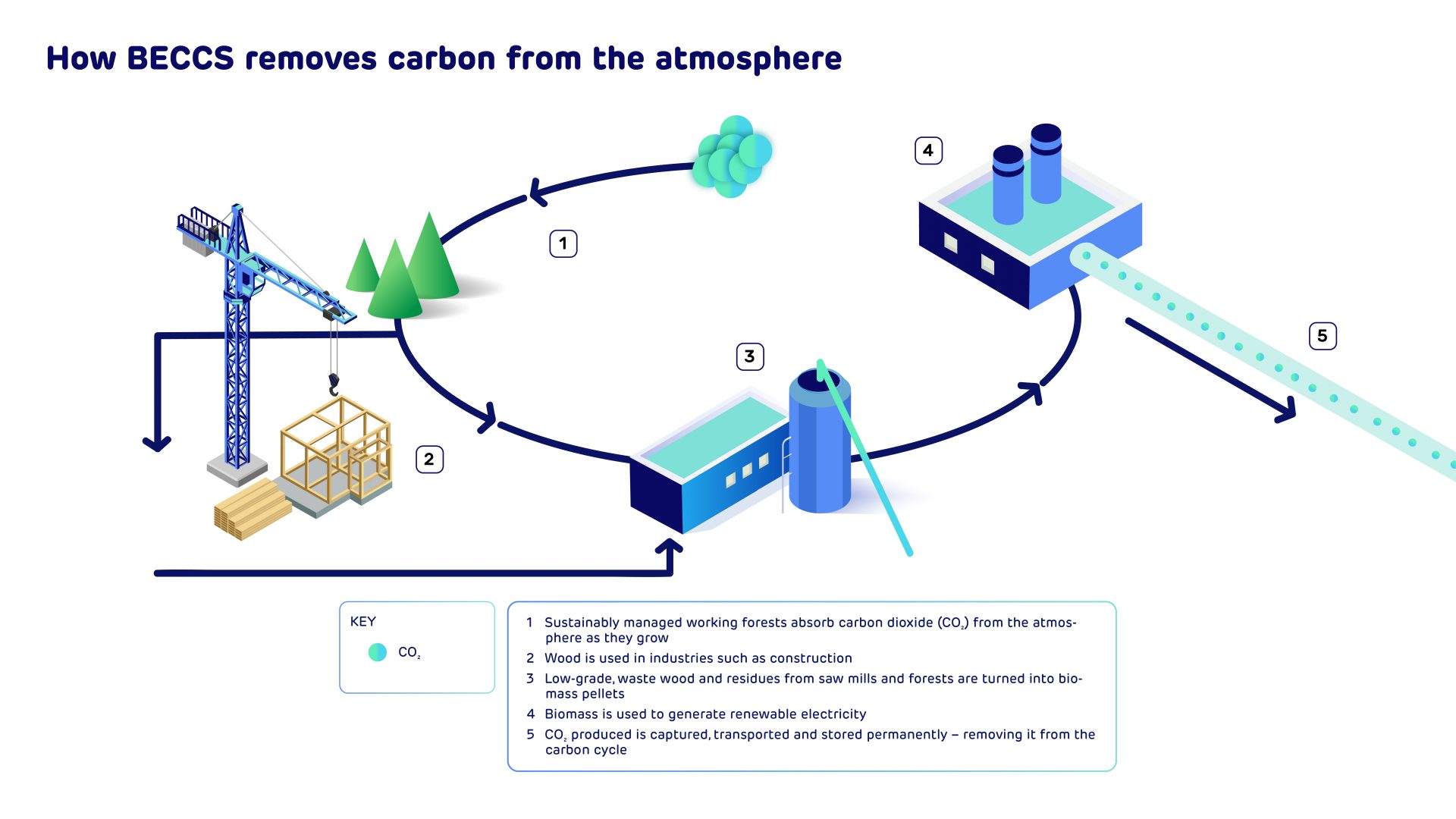
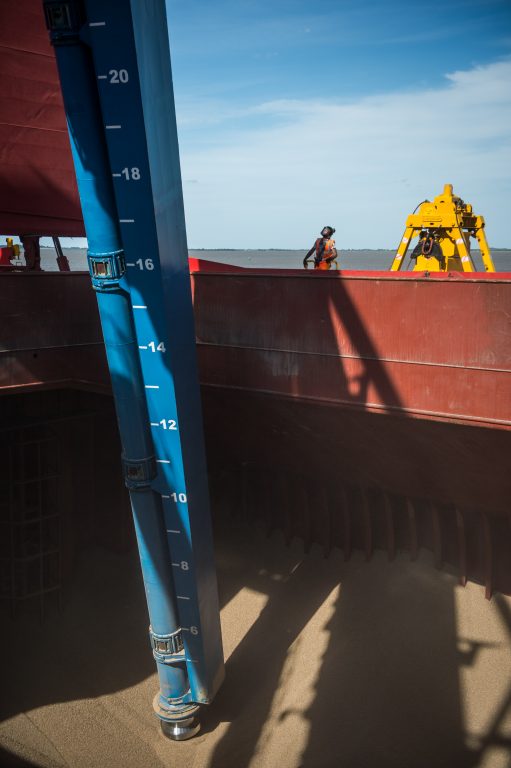

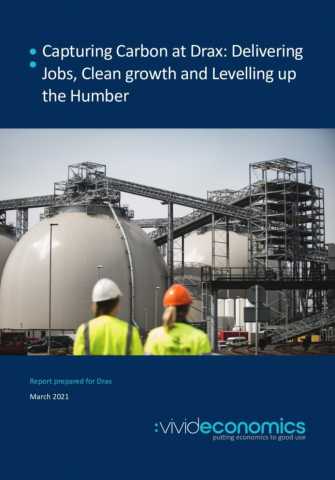
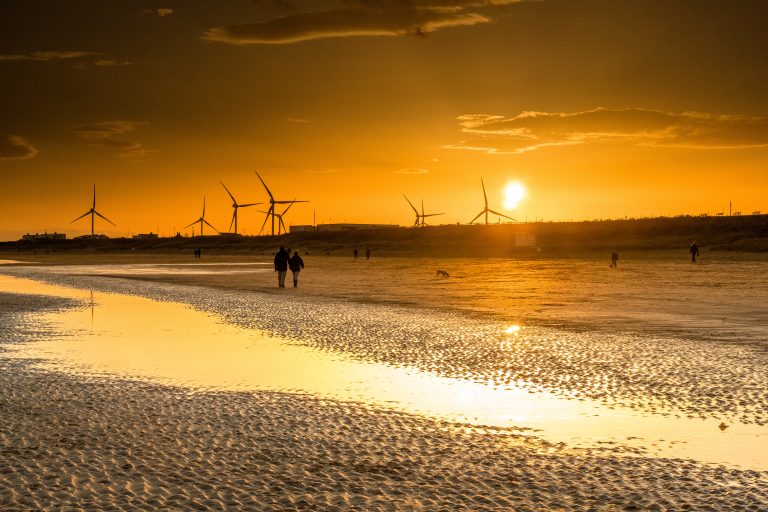

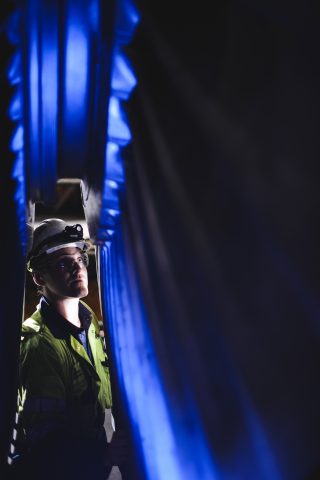
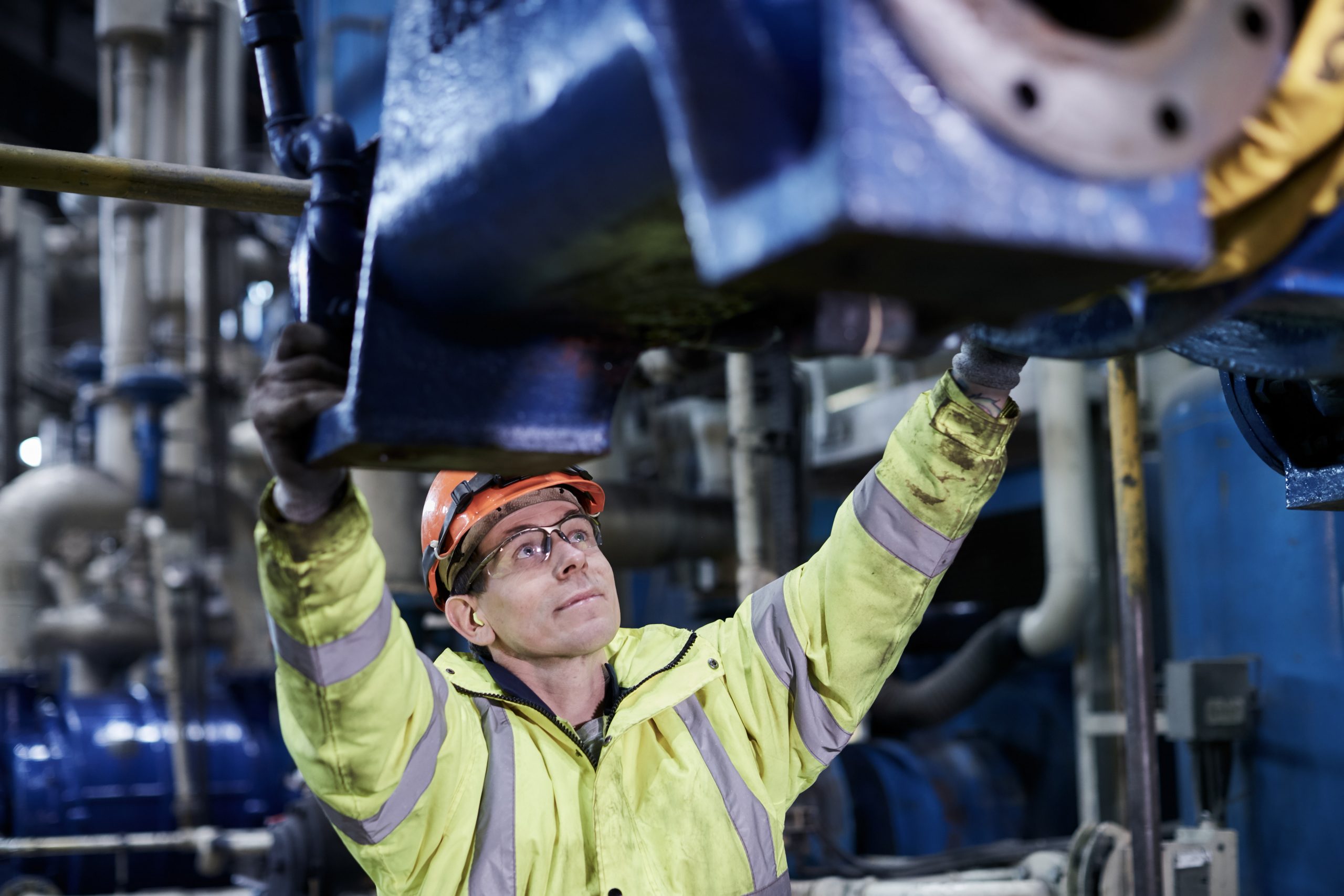

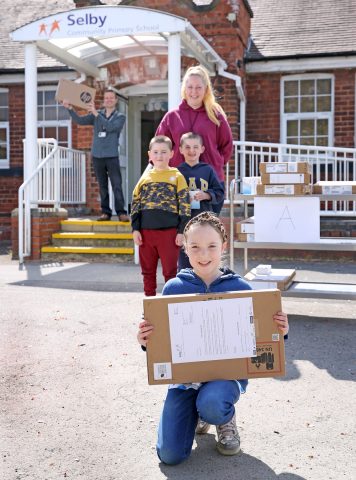
 It’s clear that care homes require extra support at this time. We are offering energy bill relief for more than 170 small care homes situated near our UK operations for the next two months, allowing them to divert funds to their other priorities such as PPE, food or carer accommodation.
It’s clear that care homes require extra support at this time. We are offering energy bill relief for more than 170 small care homes situated near our UK operations for the next two months, allowing them to divert funds to their other priorities such as PPE, food or carer accommodation.